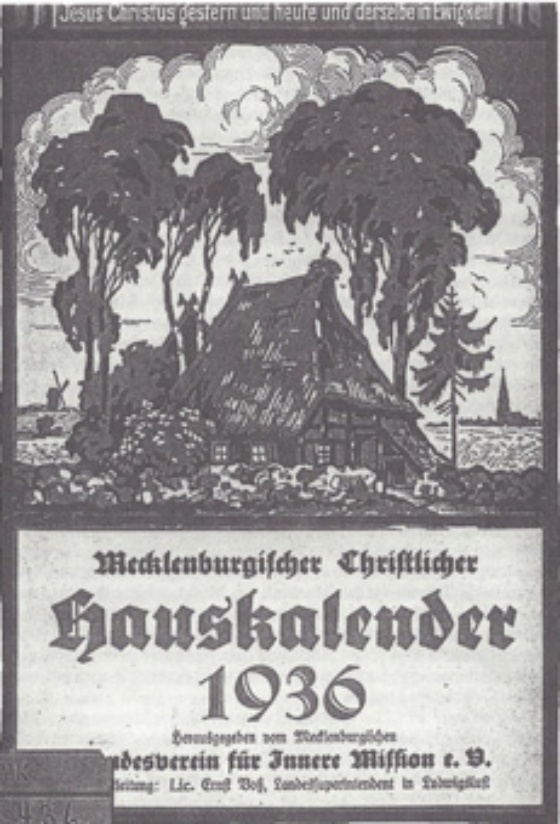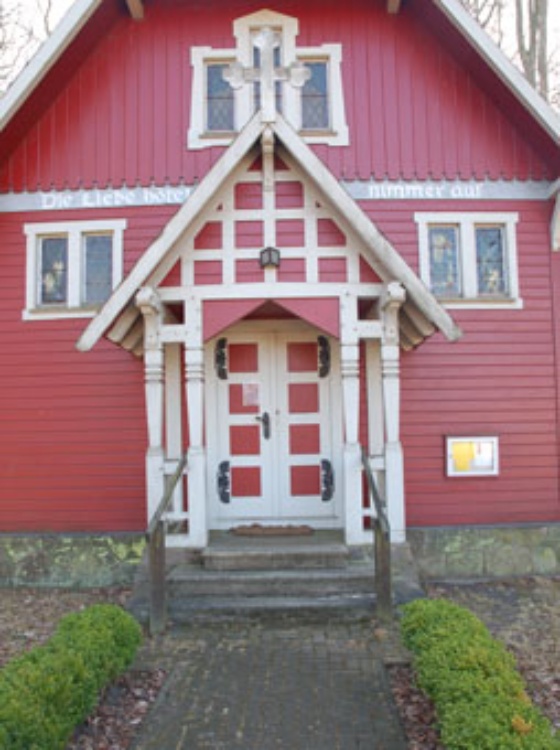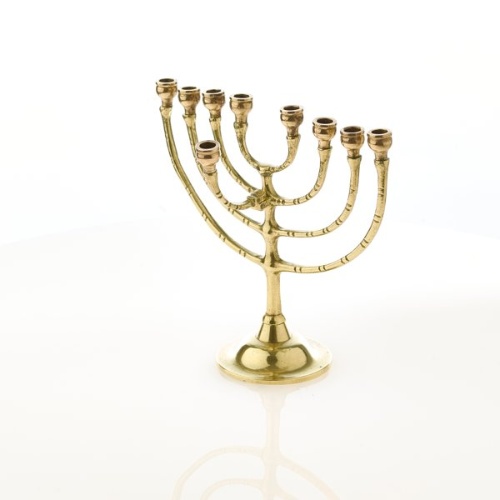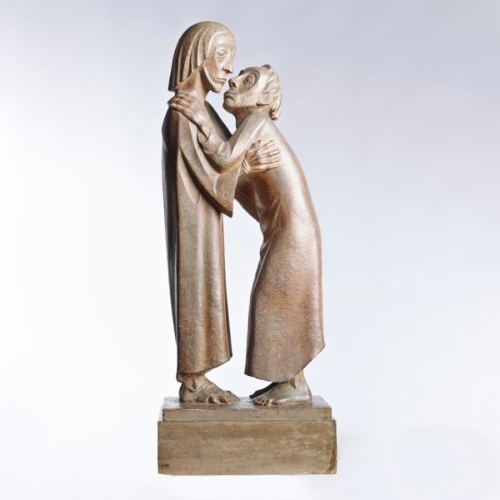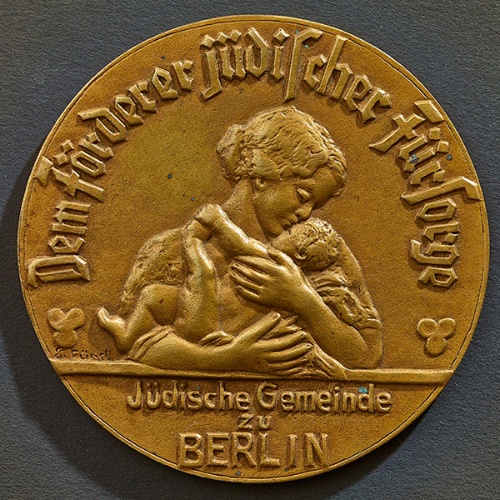After the revolution the national convents became the property of the state in 1919. The free states of Mecklenburg-Schwerin and Mecklenburg-Strelitz separated the state and church and granted freedom of religion. The evangelical Lutheran state synod stood above the High Consistory. It enacted a resolution in 1921 and elected Heinrich Behm as regional bishop. New non-denominational communities were created.
The Mecklenburg state churches were united in 1933. An evangelical NS pastoral alliance was formed. A “state church leader” displaced the head of the church. The “Gospel and Church” opposition was pursued in the courts.
Some Catholic pastors were murdered and “Jehovah’s Witnesses” were banned. The first pogroms against the Jews started in 1933. From 1942 they were deported to Auschwitz and Theresienstadt.
After 1945 all religious communities were looking for internal consolidation. Niklot Beste became regional evangelical bishop in 1946. The Theological Faculty in Rostock was retained. The proportion of Catholics increased through refugees from the East. Church land was not dispossessed but assigned to new farmers. The surviving Jews created a new state community.
